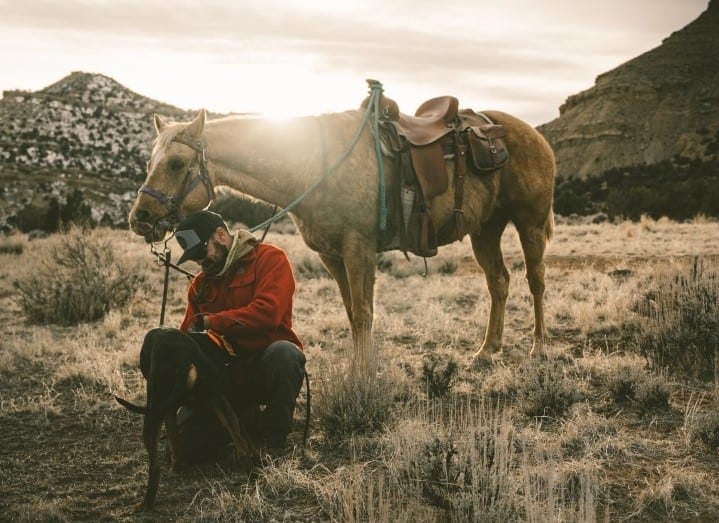
If you added a new member to your pack and are looking for tips for training your hunting dog our very own Forrest Parker has some world-class advice for you. When Forrest isn’t being the champion of our conservation mission and leading our communications teams, he can often be found on the in the mountains working his dogs, and training some world-class big game hounds.
The most important thing to keep in mind when training your dog is your ‘why’ as Forrest alludes to “I train for one reason. I love the team, the journey, and challenges of helping a dog develop into what it loves doing. I just want to be a team-mate and help provide the opportunities for success and be there to provide trusted support when needed. Just like you would expect from your own friend.”
Here are 5 more tips from Forrest that will help you get on the fast track to training a world-class hunting dog.
1. Take Advice With A Grain of Salt
Leave the peer pressure behind! We all have mentors, coaches, and varying resources we tap for help. That’s exactly what one should do to be great. Learn, test, adapt. However, peer influence/judgement is also the most common problem, especially with big-game hounds, that I have experienced. The dog always suffers, as the driving forces are other‘s opinions or expectations and not the individual development needs of the animal. Far too many folks react out of emotion or set false expectations in an effort to satisfy the judgment of someone else. Who cares what anyone thinks about your style or your motivations. Do you and make sure your doing it for the reasons that bring you joy and are in the best interest of your companion. If you are in it to impress others, then get into people training. It’s unfair to the dog.
2. Welcome The Mistakes – For You & Your Dog
I see so many people who get all flustered and even embarrassed if their dog makes a mistake. Most often, they never think back to all the evenings that they didn’t choose to spend with their dog, or the weekends they had little League games. They simply expect the animal to be what they want it to be. You get what you put into it and I truly feel that the only real deciding factor in ones success is the amount of time they spend with a dog. It is always more relevant than any trick or tactic and it shows, every time. The more mistakes I can expose, the more opportunity I have to help my pal through those.
3. Don’t Forget to Celebrate Your Wins
Just like any working environment, if no one celebrates the wins and only acknowledges the failures…well, no one is gonna want to come to work, for fear of failure is the promoted form of self preservation. You will find that with dogs, setting them up for wins will equal much more progress than only correcting the mistakes. The more they win, the more they want to make those coinciding choices…again.
4. Start With The Work At Home
I see so many folks that take a puppy into the field for the first time and when they call it’s name, it doesn’t come. They look around at their friends and almost every time, start getting frustrated, make bad decisions based on emotions, and expect the dog to read their mind. If you haven’t taught the dog a command at home, in a more controlled environment, don’t expect them to naturally under pressures that you haven’t exposed them to yet. Just because you can afford an e-collar system, doesn’t mean that the dog knows what your asking; that’s your job.



